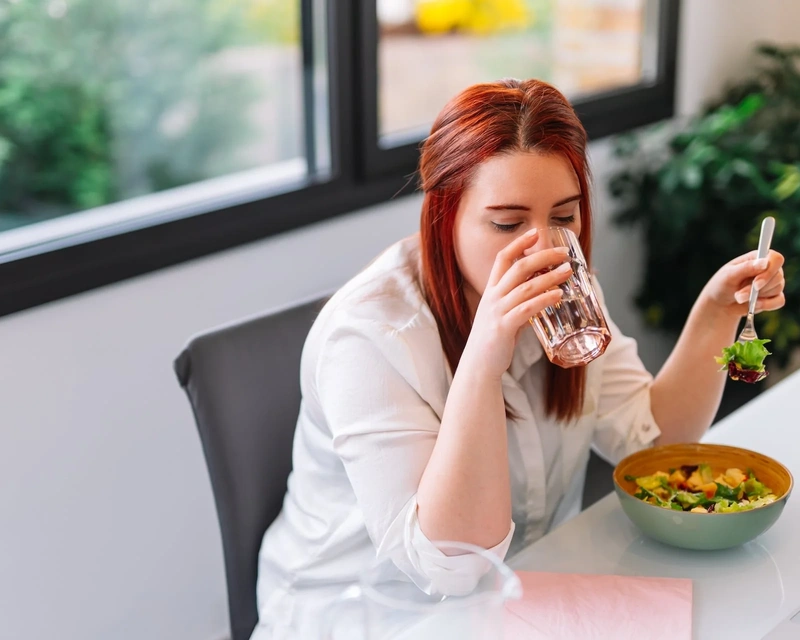
THE 30-MINUTE RULE AFTER BARIATRIC SURGERY
After bariatric surgery you are recommended to eliminate eating from drinking. You should drink your liquids at least for 30 minutes before a meal, and for 30 minutes after a meal. People often ask, is it forever? Yes, it is forever.
Here's why it's not recommended to eat and drink together after bariatric surgery:
- Prevents Overfilling the Stomach
One of the main goals of Bariatric surgery is to reduce size of the stomach and to restrict stomach capacity. Consuming both, food and liquids, together fills up the stomach quickly, potentially leading to discomfort, nausea, or vomiting.
- Aids To Digestion and Nutrient Absorption
Drinking fluids with meals dilute gastric juices and digestive enzymes, impairing the digestion and absorption of nutrients from food. Also liquids can wash away important nutrients before the body has a chance to absorb them properly. This is particularly critical for iron, calcium, and vitamins.
- Proper chewing
Need to drink with food comes more likely from too big bites and poor chewing, so you might have a wish to wash everything down with fluid. Digestion process of carbs begin in mouth by enzymes of saliva. If you do not chew your food properly, you slow down the digestion process.
- Satiety Feeling
By consuming food and fluids separately, individuals are more likely to feel full and satisfied with smaller portions of food and longer, which can aid in weight management and prevent overeating.
- Dumping Syndrome Risk
Dumping syndrome is quite a common side effect after bariatric surgery. It occurs when food or liquids move too quickly from the stomach into the small intestine, leading to symptoms such as nausea, sweating, weakness, and diarrhoea. Consuming food and fluids together can increase the risk of dumping syndrome. Recently doctors often mention dumping syndrome as a positive side effect of bariatric surgery as it motivates person to commit to dietary changes after bariatric surgery.
- Hydration
Drinking fluids between meals, rather than with meals, helps ensure adequate hydration.
The Best Practice Of Eating And Drinking After Bariatric Surgery:
- Stop drinking ~30 minutes before a meal
- Wait at least 30 minutes after eating before drinking
- Sip water throughout the day to stay hydrated
By following post-bariatric surgery guidelines and avoiding simultaneous consumption of food and beverages you can support your nutritional needs, optimize weight loss results, and reduce the risk of unwanted side effects after weight loss surgery.
Please CONTACT US for more information about bariatric surgery!